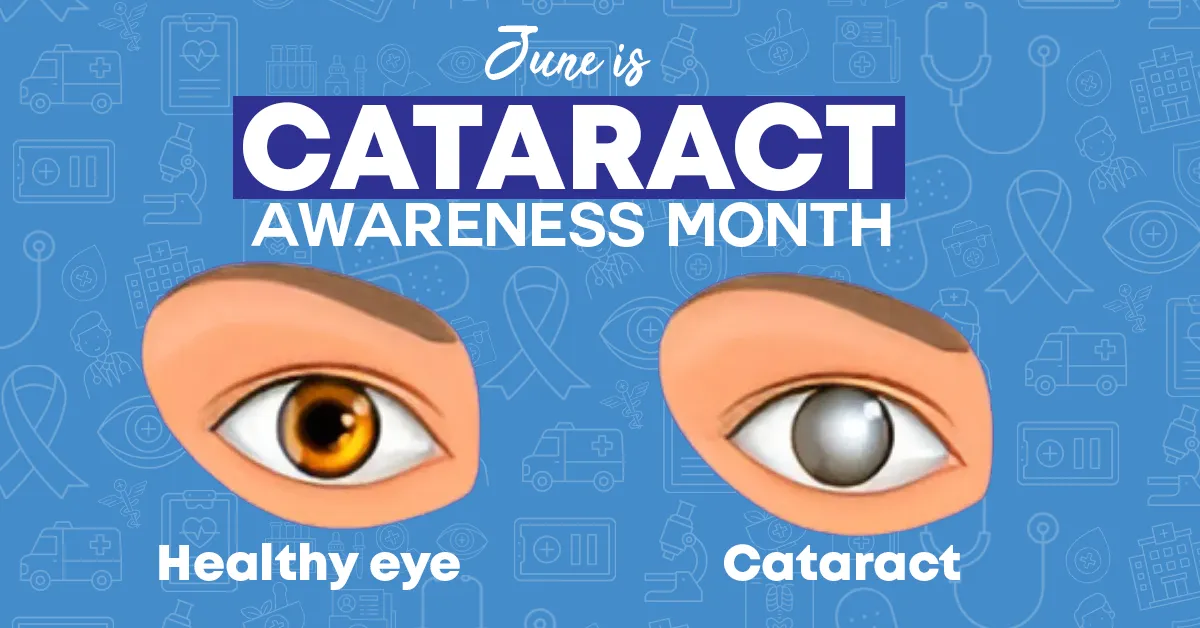Cataracts are a clouding of the eye that can impair vision. They are common in older adults, with the National Eye Institute estimating over half of all Americans over age 80 have cataracts or have had cataract surgery.
June is Cataract Awareness Month and a great time to schedule your annual eye exam to have your eye health evaluated. Cataracts can be identified during a routine eye exam.
What do cataracts do to vision?
Cataracts create blurry vision that makes it difficult to see and contributes to cataracts being the leading cause of blindness worldwide.
The eye has a lens located behind the colored portion of the eye. The lens focuses light on the retina that is used to send the image to the brain. However, the clouding effect caused by a cataract results in the light scattering and not being able to be properly focused by the lens. The American Optometric Association explains this process in more detail here.
What causes cataracts?
The National Eye Institute attributes cataracts to normal aging in your eye as you get older. After age 40, proteins in your eye can begin breaking down and clumping together, and these clumps form the cloudy cataracts that appear on the eye.
Who can have cataracts?
Cataracts are most common in older adults. Commonly, cataracts will not start developing until after age 40 with symptoms not being present until after age 60.
The American Academy of Ophthalmology reports more than 20 million Americans over age 40 have cataracts.
While most common in adults, children can develop cataracts too, including having them at birth, though this is rare.
How are cataracts treated?
Eye doctors can prescribe glasses to aid the vision of someone with cataracts. However, because cataracts continue to change and develop over time, the glasses are a temporary solution. To restore normal vision, it is necessary to have cataract surgery.
During cataract surgery, an ophthalmologist removes the clouded lens and replaces it with a clear artificial lens. Some patients may be able to complete cataract surgery without the need for an artificial lens.
Are cataracts hereditary?
Researchers do not have conclusive evidence that cataracts can be hereditary. However, a 2020 study from UK researchers identified genes they believe could put someone at an increased risk of cataracts.
Early research has also hypothesized that certain genes may affect the shape of eyes or destabilize proteins in the eye, which could increase the risk of developing cataracts. If these factors are genetic, then the risk of developing cataracts could, in theory, be hereditary.


